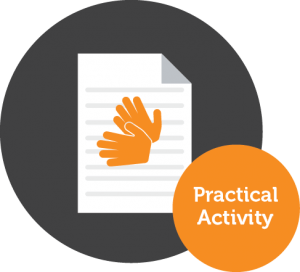![]()
![]()
Includes food businesses that manufacture food such as flour mills, canneries, packers, wholesale bakers, breweries, wine production, airline caterers, ice manufacturers and producers of pre-packaged meals.
-
Apply food safety procedures (FBPFSY2002)
This unit is Nationally Recognised.

Have Questions?
Please submit a request using the Contact Form on our Support Centre
Office hours: Mon-Fri, 9am – 4pm EST
P: 07 3289 1347
Visit our FAQs section
New South Wales RESIDENTS
The NSW Food Authority has a requirement for a certificate to be issued in the New South Wales Food Authority format.
This course will enable all Food Safety Supervisor’s meet their obligations under the recently revised Food Standards Code.
It will also provide Food Safety Supervisors with access to updated learning and resources related to the work requirements of their food related business.
Recent revisions to the Food Standards Code place an increased emphasis on
- Legislation and Food Safety
- Allergen Management
IMPORTANT
To be eligible for this course:
To be eligible to enrol into this course, you will need to provide us with a copy of your previous Statement of Attainment that supports your access to this recertification course. Your Statement of Attainment must hold the relevant competency codes for Food Safety Supervisor training.
Please refer to this TABLE for these codes.
Why recertification is necessary?
Under the Food Standards Code, Standard 3.2.2A, Food Safety Management Tools, food safety supervisors for category one and category two food businesses (excluding the handling of food for or at a fundraising event) must obtain a food safety supervisor certification at least every five years.
It is recommended that food safety supervisors for all other licensed food businesses obtain the same certification to demonstrate that they have the required level of skills and knowledge to be a food safety supervisor.
The food safety supervisor should be able to provide their certificate to an authorised officer, if requested.
A food safety supervisor requires training based on the food sector that they are working in. Competency codes and titles are set by the National Quality Council and may change. If your food safety supervisor has a different competency code or title, contact your local government for advice.
FOR BUSINESS OWNERS AND MANAGERS
Managing food businesses, with multiple staff, operating for extended hours and across jurisdictions, can be complicated. Food safety competencies delivered and assessed by Food Safety Australia may be purchased centrally by you and kept on your Food Safety Australia account. Our shopping cart allows you to purchase multiple courses in one easy transaction. From there, you are able to allocate the courses you have purchased to the participants whom you require to complete the training.
![]()
![]()

ONLINE MODULES
Each module of the food safety supervisor course will help you to achieve one of the required elements of competence.
You will be provided with a series of presentations and quizzes. Make sure you are completely comfortable with the presentation content before attempting the quiz, you may view them as many times as you feel necessary. You are required to achieve a grade of 100% for each of the seven quizzes in this course and you are allowed up to three attempts for each quiz.
We also provide a PDF of student notes, which you can print out for ready reference whilst completing the course.
Workplace Observation
As well as completing the on-line quizzes satisfactorily, you will also complete and return a Workplace Observation. It is a requirement that you are able to demonstrate the application of the skills you have gained from the on-line course in a practical way in a commercial kitchen.
It is required that you have access to a food workplace (either as an employee or a volunteer). This food workplace should:
- Be an operational commercial food preparation area, bar or kitchen with the fixtures, large and small equipment and workplace documentation defined in the Assessment ; can be a real industry workplace simulated industry environment such as a training kitchen servicing customers
- Have real food ingredients and food items
- Be fully equipped for food preparation (eg. a commercial kitchen, catering production line or food preparation area of a food outlet)
The Workplace Observation can be made by anyone you are working alongside providing they are in the position to make valid observations of your performance. The observer should meet the following requirements:
1. Have 2 years or more experience in a food handling environment in a supervisory role AND either
a) A current Australian Food Safety certificate (eg. Food Handlers Certificate or Food Safety Supervisor)
or
b) A qualification that meets the requirements of Food Handling safety (eg. Commercial Cookery or hospitality qualification or relevant higher education qualification
2. Be prepared to observe your activity in the workplace
3. Be prepared to be contacted by a Food Safety Australia assessor to confirm the Observer information provided.
If you are not currently working within the industry and do not have immediate access to an operational commercial kitchen, here are a few options:
- If you have worked in the food industry before, then you can have a past manager or co-worker complete the form based on past observations (no more than 12 months ago)
- If you have a friend or family member employed in the food industry, they can also make observations
- You can also speak to your local council and ask for a list of food-based charities that you can volunteer for. Many of these organisations deal with food and many of the regular volunteers are able to sign off on your observation report
WORKPLACE ASSIGNMENT
The practical activity is a brief knowledge based assignment, where you demonstrate the application of your learning to a workplace situation. Food Safety Australia is able to structure this activity, to suit participants not yet employed in a working food environment.







